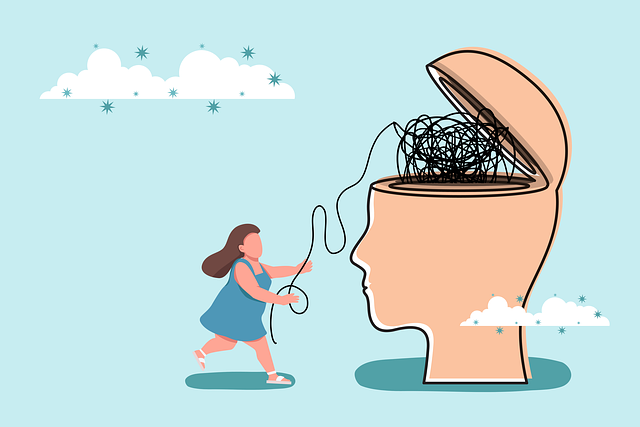In Boulder, Dialectical Behavioral Therapy (DBT) offers a comprehensive, evidence-based approach to trauma healing, combining cognitive-behavioral techniques with mindfulness practices. DBT helps individuals manage intense emotions, tolerate distress, and improve relationships, fostering resilience and reducing mental illness stigma. By addressing barriers like stigma through Community Outreach Programs, specialized care becomes accessible to at-risk populations, promoting long-term emotional well-being for trauma survivors in Boulder.
Trauma is a significant public health concern, affecting individuals across diverse demographics. This article explores comprehensive trauma support services and the pivotal role of Boulder Dialectical Behavioral Therapy (DBT) in fostering healing. We delve into the profound impact of trauma, its effects on mental health, and the evidence-based approach of DBT as a transformative therapy. Additionally, we discuss strategies for effective trauma care, highlighting successful integration of Boulder DBT within specialized programs.
- Understanding Trauma and Its Impact
- The Role of Dialectical Behavioral Therapy (DBT) in Trauma Support
- Providing Effective Trauma Support Services
- Integrating Boulder DBT into Trauma Care Programs
Understanding Trauma and Its Impact

Trauma is a complex response to distressing events, shaping an individual’s emotional and psychological well-being in profound ways. It can manifest from various experiences, including accidents, violence, or prolonged adverse situations. In many cases, individuals cope with trauma through adaptive mechanisms, but when these become maladaptive, it can lead to severe mental health issues such as anxiety, depression, and post-traumatic stress disorder (PTSD).
The impact of trauma extends beyond the immediate experience, influencing interpersonal relationships, daily functioning, and overall quality of life. Effective support services play a pivotal role in helping individuals navigate their traumatic experiences. One evidence-based approach gaining recognition is Dialectical Behavioral Therapy (DBT), which combines cognitive-behavioural techniques with mindfulness practices to enhance coping skills development. In Boulder, DBT therapy has shown promise in treating trauma by promoting positive thinking and empowering individuals to manage intense emotions, ultimately fostering resilience.
The Role of Dialectical Behavioral Therapy (DBT) in Trauma Support

Dialectical Behavioral Therapy (DBT) has emerged as a powerful tool within trauma support services, offering individuals coping mechanisms and skills to navigate the complexities of emotional healing processes. This form of therapy is particularly effective for those who have experienced traumatic events, as it helps them regulate emotions, tolerate distress, and improve interpersonal effectiveness. The structured nature of DBT, coupled with its focus on mindfulness, provides a safe space for clients in Boulder to explore and process their trauma while cultivating inner strength development.
By combining cognitive techniques with behavioral strategies, DBT facilitates the unlearning of unhealthy coping mechanisms associated with trauma. This is achieved through individual therapy sessions, group skills training, and phone coaching, all tailored to meet the unique needs of each client. The goal is not only to reduce symptoms but also to foster resilience and promote positive changes in one’s life. In addition, DBT contributes significantly to mental illness stigma reduction efforts by emphasizing that individuals can recover and lead fulfilling lives after trauma, thereby shifting perspectives and empowering those who have experienced it.
Providing Effective Trauma Support Services

Effective trauma support services are pivotal in helping individuals navigate and recover from the profound impacts of traumatic events. One evidence-based approach gaining recognition is Boulder Dialectical Behavioral Therapy (DBT). This therapy type combines cognitive-behavioral techniques with mindfulness practices, empowering clients to develop coping strategies for managing intense emotions and distressing thoughts. By fostering positive thinking and emotional regulation skills, DBT aids in trauma healing and depression prevention.
The implementation of a robust Community Outreach Program can further enhance access to these support services. Such programs facilitate connections between vulnerable individuals and the necessary resources, addressing barriers like stigma or lack of awareness. Through targeted outreach efforts, communities can ensure that at-risk populations receive the specialized care they deserve, ultimately promoting resilience and well-being in the long term.
Integrating Boulder DBT into Trauma Care Programs

Integrating Boulder Dialectical Behavioral Therapy (DBT) into Trauma Care Programs offers a transformative approach to supporting individuals who have experienced traumatic events. This evidence-based therapy is designed to help patients develop effective coping mechanisms, enhance emotional resilience, and build healthier relationships. By incorporating DBT techniques, care programs can equip participants with essential skills in empathy building strategies and compassion cultivation practices, enabling them to navigate the complexities of their trauma journeys with greater ease.
The focus on emotional regulation is a cornerstone of DBT, teaching individuals how to manage intense emotions that often accompany traumatic experiences. Through group therapy sessions and individualized support, participants learn to identify and validate their feelings while adopting more adaptive behaviors. This holistic approach not only accelerates the healing process but also fosters a sense of safety, trust, and connection, all of which are crucial for long-term recovery and well-being.
In conclusion, trauma support services play a pivotal role in helping individuals heal from the profound effects of traumatic experiences. Integrating advanced therapeutic approaches like Boulder Dialectical Behavioral Therapy (DBT) offers innovative and effective care. By combining cognitive and emotional regulation skills, DBT empowers survivors to navigate their healing journey with enhanced resilience. As recognized by experts, this comprehensive approach can significantly improve outcomes for those seeking trauma support, ultimately fostering a more supportive and adaptive response to the challenges of trauma.














